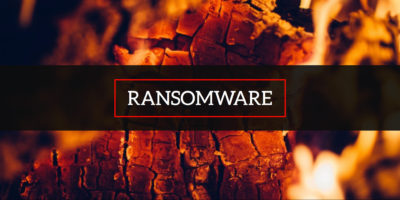Kaspersky

Will fileless malware push the antivirus industry into oblivion?
The death of antivirus has been prophesied for years now, but the AV industry is still alive and kicking. SentinelOne, though, believes that in-memory resident attacks, i.e. …

Attacks exploiting software vulnerabilities are on the rise
Attacks conducted with the help of exploits are among the most effective as they generally do not require any user interaction, and can deliver dangerous code without arousing …

15 new ransomware decryption tools added to No More Ransom
Nine months after the launch of the No More Ransom (NMR) project, an ever-growing number of law enforcement and private partners have joined the initiative, allowing more …

Organizations hit with Petya ransomware with a twist
Various organizations are being targeted by cyber crooks leveraging the infamous Petya ransomware. A modified Petya version inside a Trojan But victims will have a difficult …

StoneDrill: New wiper targets Middle East, shows interest in Europe
Kaspersky Lab has discovered a new sophisticated wiper malware, called StoneDrill. Just like another infamous wiper, Shamoon, it destroys everything on the infected computer. …

Advanced Windows botnet spreads Mirai malware
Kaspersky Lab experts are analyzing the first Windows-based spreader for the Mirai malware as part of a concerted effort to close down Mirai botnets in the wild. The Windows …

Insecure car-controlling Android apps are a boon for car thieves
Being an expensive thing, a car requires an approach to security that is no less meticulous than that of a bank account. Yet, car manufacturers are infinitely more interested …

Russian-speaking cybercriminals created over 75% of all crypto ransomware
According to the Kaspersky Lab’s telemetry, in 2016 more than 1,445,000 users (including businesses) around the globe were attacked by 54 thousand modifications of 60+ …

U.S. consumers’ views on cybersecurity
To better understand how Americans think about hacker motivations, consumer versus business security responsibilities, ransomware and the political climates impact on the …

Six critical customer support differentiators in cybersecurity
Regardless of size or sector, excellent customer support is a major differentiator within any organization. In the cybersecurity industry, however, tech support is more than a …

Banks around the world hit with fileless malware
Kaspersky Lab researchers have brought to light a series of attacks leveraged against 140+ banks and other businesses around the world. But what makes these attacks unusual is …

New sheriffs in town: No More Ransom
A couple of months ago, Intel Security, Kaspersky Lab, Dutch National Police and Europol announced the No More Ransom initiative. Such an initiative was a true example of the …